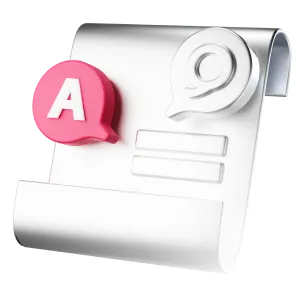The average oil change, including a new oil filter, costs between $25 and $125. The potential difference in cost comes down to whether your car requires conventional oil or synthetic oil, your car’s oil capacity, and your mechanic’s rate per hour.
How much does an oil change cost?
The type of oil you use has a major impact on the cost of your oil change:
- Conventional oil: If you can use conventional oil in your car, you’ll pay less for an oil change, typically about $25-$75.
- Synthetic oil: Some cars require synthetic oil, which is more expensive, so an oil change may cost about $45 to $125.
These prices include the cost of an oil filter and labor. Labor typically costs around $40 to $50.
How much does it cost to get an oil change at Walmart?
If you were getting an oil change at a Walmart in Buffalo, N.Y., you’d pay at least $24.88, for an oil change using conventional oil, and as much as $64.88, for an oil change using the most expensive synthetic oil. You can get an oil change using synthetic oil starting at $44.88. An oil change using conventional diesel costs $49.88.
All oil changes include up to 5 quarts of oil and a new oil filter. Many of the more expensive packages also include checks of the air filter, wiper blades, lights, and other accessories, a fill-up on your washer fluid, a windshield wash, and other services.
How much does it cost to get an oil change at Jiffy Lube?
Alternatively, if you got your oil changed at a Jiffy Lube in Buffalo, N.Y., prices for conventional oil start at $59.99, and prices for synthetic oil start at $79.99. An oil change using full synthetic oil costs $99.99 before any add-ons. All services include up to five quarts of oil. We used a 2022 Honda Accord to generate these quotes.
How much does it cost to change your own oil?
If you decide to DIY, you can save a lot of money by buying oil from an auto parts store or an online platform. Let’s take a look at a few sample prices from Amazon:
- Conventional oil: $22.96 (Castrol GTX 20W-50, 5 quarts)
- Synthetic oil: $22.81 (Castrol EDGE AFS 5W-20, 5 quarts)
- Oil filter: $3.97 (Motorcraft FL-820-S)
Depending on your engine, you might need to buy multiple containers of engine oil. For example, a Ford F150 with a 5.2-liter engine takes 11.5 quarts of oil—meaning you need to buy three five-quart containers to change your oil. On the other hand, a 2022 Honda Accord with a 2.0-liter engine uses only four quarts.
Of course, if it’s your first time changing your car’s oil, you might also need to buy tools, like a drip pan and a funnel, and you’ll need to decide how to dispose of the oil.
How long does an oil change take?
It depends on where you get your oil changed. Once your service begins at Jiffy Lube, the company predicts it’ll be completed in 15 minutes or less. Many other quick lube businesses have similar timelines. If you get your oil changed at a mechanic or a dealership, you may wait longer—so while it could take 15 minutes, your car might also be in the shop for closer to two hours.
How will a mechanic replace my oil?
To replace your oil, a mechanic will first remove the drain plug and drain the old oil. At the same time, the mechanic will remove the old oil filter and install a new one. Then, once the old oil has drained, the mechanic will reinstall the drain plug and refill the engine with new oil.

Xuyun Zeng is a writer and editor with a wide-ranging content background including tech, journalism, cars and health care. After graduating with highest honors in journalism, Xuyun led a newspaper to win eight awards, helped start an award-winning film industry podcast and has written over a hundred articles about cars repair, state laws and insurance. Prior to joining Jerry, Xuyun worked as a freelance SEO consultant with a mission to create the best content that will help readers and grow organic traffic.

Alice Holbrook is an editor with more than a decade of experience covering personal finance, including car insurance. She\\\’s passionate about creating easy-to-understand content that demystifies intimidating topics for readers. Previously, she worked for NerdWallet, and her work has been featured by Newsweek, The Washington Post and the Associated Press, among others.








